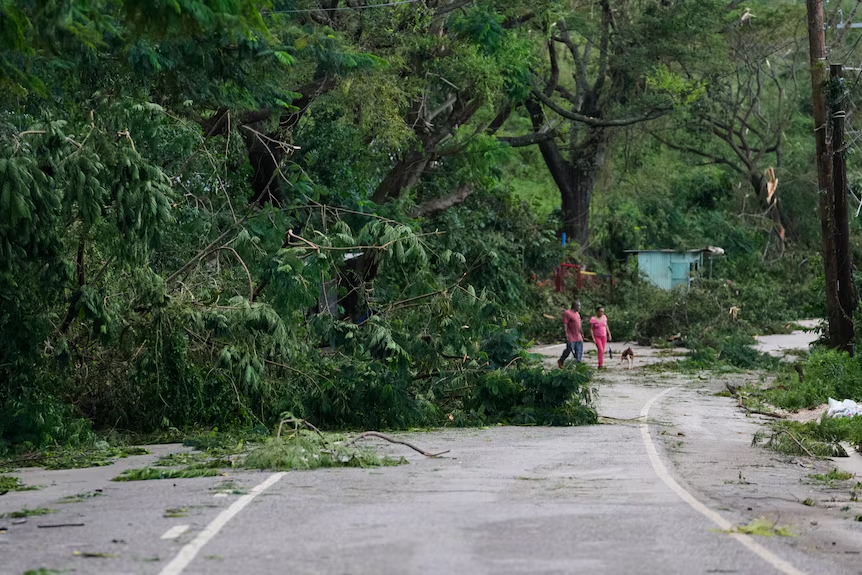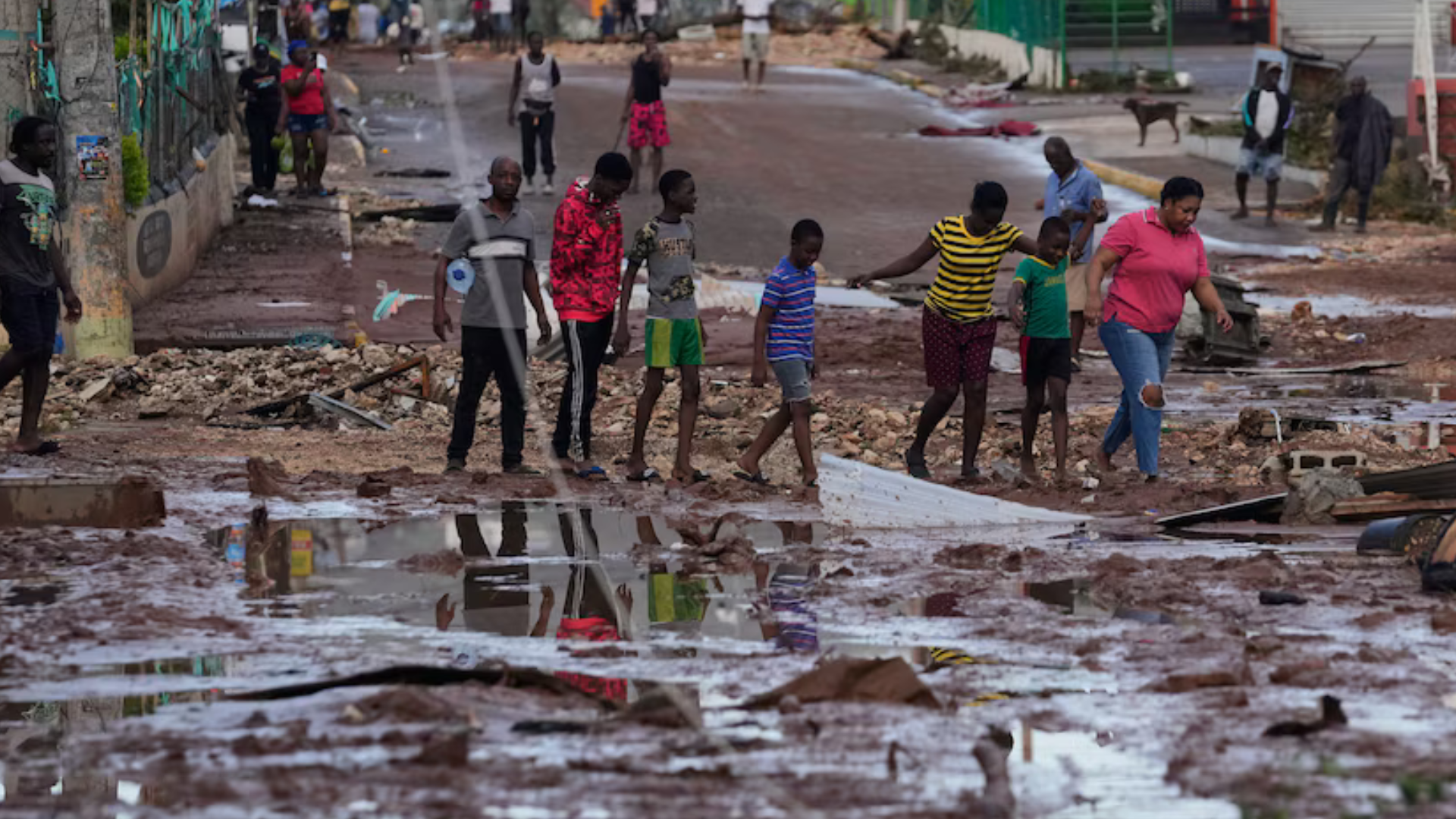Hurricane Melissa, one of the strongest Atlantic storms on record, has left dozens dead and widespread devastation across Jamaica, Haiti, and Cuba after making landfall as a category five hurricane with winds reaching 295 kilometres per hour.
In Haiti, at least 40 people have been confirmed dead, including 20 in Petit-Goâve, where another 10 remain missing, according to Steven Aristil of the Civil Protection Agency.
Flooding also struck shelters housing families displaced by gang violence in Port-au-Prince.
In Jamaica, 77 per cent of the island lost power, and more than 25,000 people were forced into shelters.
The storm tore off roofs, caused landslides, and destroyed infrastructure in southern parishes such as Saint Elizabeth, where four bodies were recovered and one infant was killed when a tree fell.
“Catastrophic is a mild term based on what we are observing,” said Mayor Richard Solomon of Black River, as rescue efforts intensified.

Prime Minister Andrew Holness pledged that the government was “fully mobilised” and working to deliver relief and restore normalcy.
In Cuba, about 735,000 people remained in shelters after homes collapsed and roads were blocked, particularly in Santiago de Cuba.
President Miguel Díaz-Canel said recovery would begin “as soon as conditions allow,” while residents described losing everything to flooding and wind damage.
The United States has deployed rescue and response teams to assist recovery efforts across the Caribbean, with Secretary of State Marco Rubio confirming coordination with leaders in Jamaica, Haiti, the Dominican Republic, and the Bahamas.
As of Wednesday, Hurricane Melissa had weakened slightly while moving northeast toward the Bahamas, where officials remained on high alert for further damage and flooding.
Source: ABC.
